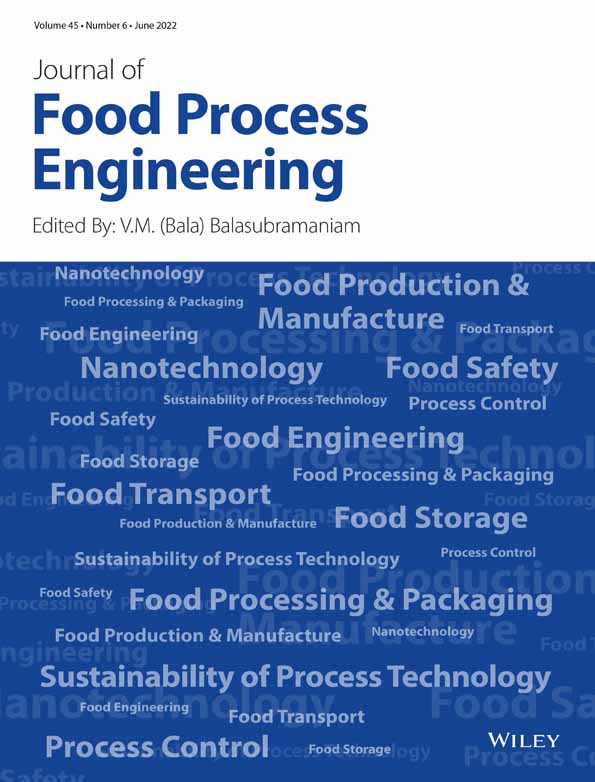Solar energy-based extraction of essential oils from cloves, cinnamon, orange, lemon, eucalyptus, and cardamom: A clean energy technology for green extraction
Abstract
Conventional essential oil extraction systems cannot meet the green extraction concepts and sustainable development goals (SDGs). Therefore, there is a need to develop alternative systems based on clean energy. The present study aims to investigate the possibility of essential oil extraction using solar energy without utilizing synthetic solvents. Hence, an eco-friendly solar energy-based extraction system (SEE) was developed to extract essential oils from cloves and cinnamon barks, orange and lemon peels, eucalyptus leaves, and cardamom seeds. Essential oils were assessed in terms of yield, physical properties, and chemical composition using gas chromatography–mass spectrometry assay. Also, the process sustainability was analyzed by the green extraction evaluation approach, and results were compared with those of traditional hydro-distillation (THD). Replacing THD with SEE increased the extraction time by 0.65, 0.80, 0.41, 0.61, 0.39, and 0.45 h for processing clove, cinnamon, orange, lemon, eucalyptus, and cardamom, respectively. The optimum solar radiation for extraction was about 1000 W/m2. Also, oxygen compounds (96.45, 79.640, 42.98, and 83.76%) comprised the main proportion in the clove, cinnamon, eucalyptus, and cardamom essential oils, while orange and lemon essential oils had a high presence of terpenes. Furthermore, essential oils obtained by SEE had a similar yield and alcohol solubility to THD. According to green extraction process analysis, solar energy-based extraction was 23–34% greener than THD, depending on the type of plant material.
Practical Applications
The innovative solar-based extraction system designed and developed in this research can be used at farms and small factories to obtain essential oils using the zero-energy concept. From the energy consumption viewpoint, this technology can be regarded as “free process” which can reduce production costs. Also, the unique design of the heating section of this new system prevents overheating of the sample, making this new solar-based system suitable for the extraction of thermolabile compounds from plant materials. In this sense, obtaining a high-quality essential oil without running cost (in terms of electricity cost), relatively small size, and low capital cost makes this system practical for future applications.
CONFLICT OF INTEREST
No potential conflict of interest was reported by the author(s).
Open Research
DATA AVAILABILITY STATEMENT
The authors elect to not share data.




